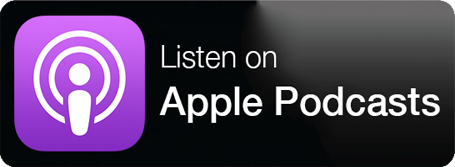International environmental law is often characterized as fragmented and heterogeneous; there is currently no single, overarching framework that outlines a set of rules and criteria of general application in international environmental law. In the latest episode of People Places Planet Podcast, we explore the recent push for a set of globally recognized principles on environmental law—called the Global Pact for the Environment—under the United Nations. In this podcast, Dominic Scicchitano, a Research Associate at ELI, talks to two individuals who have been following the issue closely: Prof. Nicholas A. Robinson and Maria Antonia Tigre. Together, they discuss the Pact’s history, its present status and future outlook, as well as its broader implications for international environmental law.
People Places Planet Podcast
Welcome to ELI’s People Places Planet Podcast. Here, listeners can gain insight on some of the thinking behind ELI's work. Below you will find our most recent episodes.
Don't see your favorite app? Subscribe and Listen
What tried and true environmental law strategies are animal rights and welfare advocates using in their efforts to protect animals? How does the exploitation of meatpacking and slaughterhouse workers in the age of COVID-19 highlight the interconnectedness between animal, environmental, and human rights issues? In this episode, we talk to Prof. Randall S. Abate about his forthcoming book, What Can Animal Law Learn from Environmental Law? (2d ed. ELI Press 2020). Tune in to learn about what animal law can learn from environmental law and how the two movements can better coordinate their common objectives.
There are many benefits to solar energy, but what about its impacts on wildlife? In this episode, we "engage the experts” and listen in on a conversation between two experts in the field of environmental law and policy, Brooke Marcus Wahlberg, a Partner at Nossaman LLP, and Dr. Karl Kosciuch, a senior biologist at Western Ecosystems Technology, Inc. Brooke and Karl will discuss their work at the nexus of solar energy development and wildlife conservation.
Towns and cities all across America are increasingly finding themselves at the front lines in protecting their citizens from the impacts of climate change. Fortunately, a number of tools just waiting to be used can already be found in many local communities’ toolbox. In this episode, we talk to Prof. Jonathan Rosenbloom about his new book, Remarkable Cities and the Fight Against Climate Change: 43 Recommendations to Reduce Greenhouse Gases and the Communities That Adopted Them (ELI Press 2020). Tune in to learn about the range of ways in which local communities can use enacted ordinances to mitigate climate change while increasing their capacity to respond and adapt to its most harmful consequences.
Since 1989, ELI has honored over 200 champions of wetlands protection through the National Wetlands Awards program, which recognizes individuals who have demonstrated exceptional effort, innovation, and excellence in protecting the nation’s wetlands. In this episode, we invite our 2020 National Wetlands Awardees to share their thoughts on the same question: What is the importance of wetlands protection now and in the future?
There are many benefits to wind energy, but what about its impacts on wildlife? In this episode, we "engage the experts” and listen in on a conversation between two experts in the field of environmental law, Brooke Marcus Wahlberg, a Partner at Nossaman LLP, and Joy Page, Director of the Renewable Energy and Wildlife team at the Defenders of Wildlife. Brooke and Joy will discuss their work at the nexus of wind energy development and wildlife conservation.
Climate change and climate science have been the subject of a great deal of discussion and political controversy here in the United States. In this era of information and disinformation, wouldn’t it be great if we had a vehicle for separating fact from fiction in this important area? A new report from ELI reveals that we already have a mechanism for crunching truth – the judicial system. In this special Earth Day episode, ELI President Scott Fulton talks to the lead author of the report, Dr. Maria Banda, to learn more.
Drinking water contamination in Flint, Michigan, has garnered nationwide attention, but it is neither isolated, nor a primarily urban problem. As Madeline Kane explains in the April issue of ELR—The Environmental Law Reporter, a hidden water crisis is straining thousands of smaller communities that share Flint’s risk factors—shrinking populations, social marginalization, and deficient funds. In this episode, ELR’s Hunter Jones talk to Madeline Kane, a J.D. candidate at Harvard Law School, to learn more about the problem, its causes, and potential solutions.
EPA’s Office of General Counsel (OGC) is the Agency’s chief legal advisor, providing counsel to EPA policymakers and providing critical input to Agency rules, regulations, and guidance documents. In this episode, Kevin Minoli, a partner at Alston & Bird who worked within EPA’s OGC for 18 years, talks to former EPA General Counsel Gary Guzy, who served as General Counsel from July 1999 to January 2001. This episode is part of a year-long series of conversations with former EPA General Counsels, allowing listeners to hear first-hand accounts of their experiences at EPA.
What do everyday practices like streaming a movie online, purchasing a new pair of jeans, or eating a burger have to do with climate change? Sadly, it turns out almost everything we do, use, and eat has a significant impact on climate change because of the way we use resources, create waste, and emit greenhouse gases without even thinking about it. In this episode, Senior Attorney Linda Breggin sits down with Tatiana Schlossberg, author of Inconspicuous Consumption: The Environmental Impact You Don’t Know You Have, to learn more.



